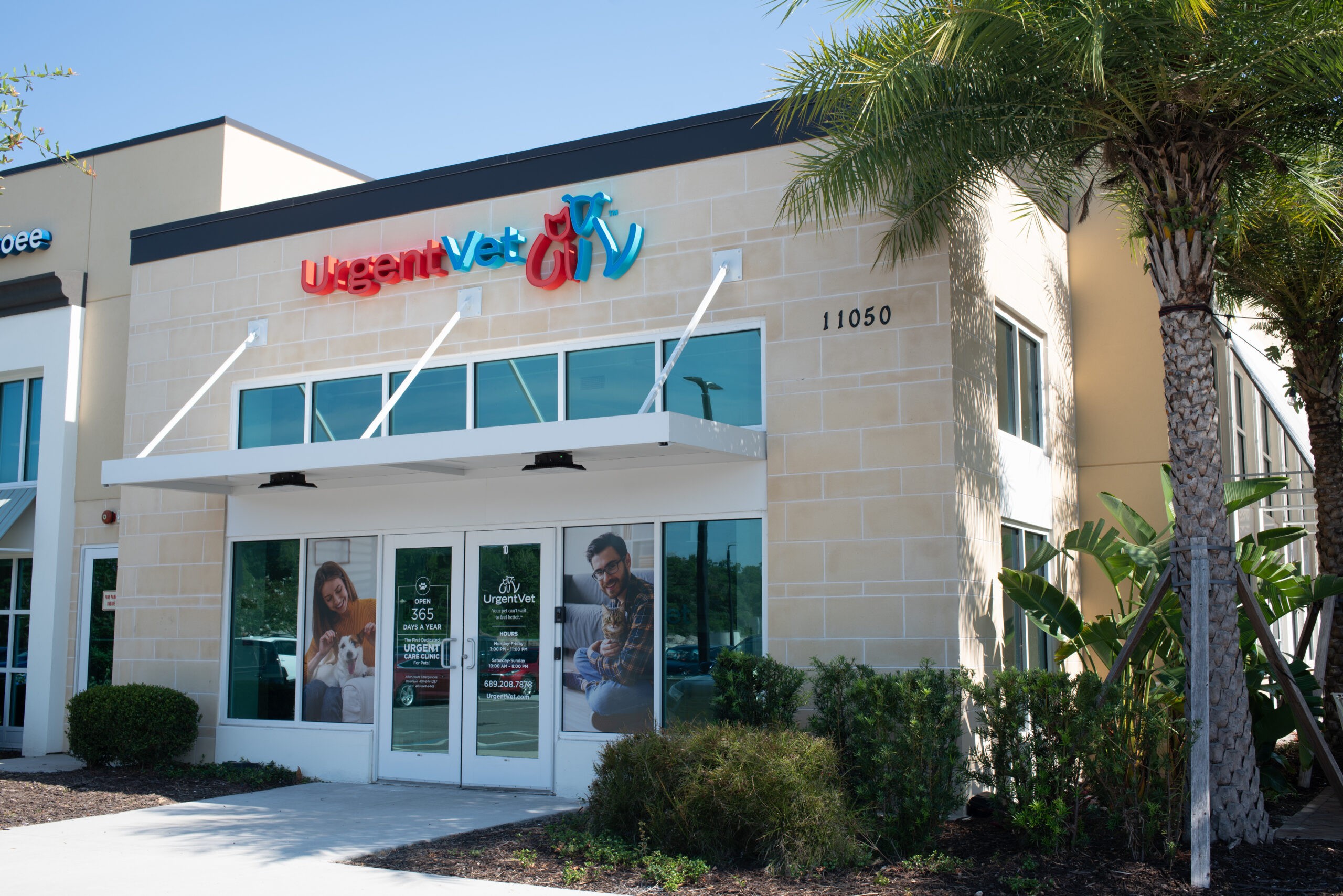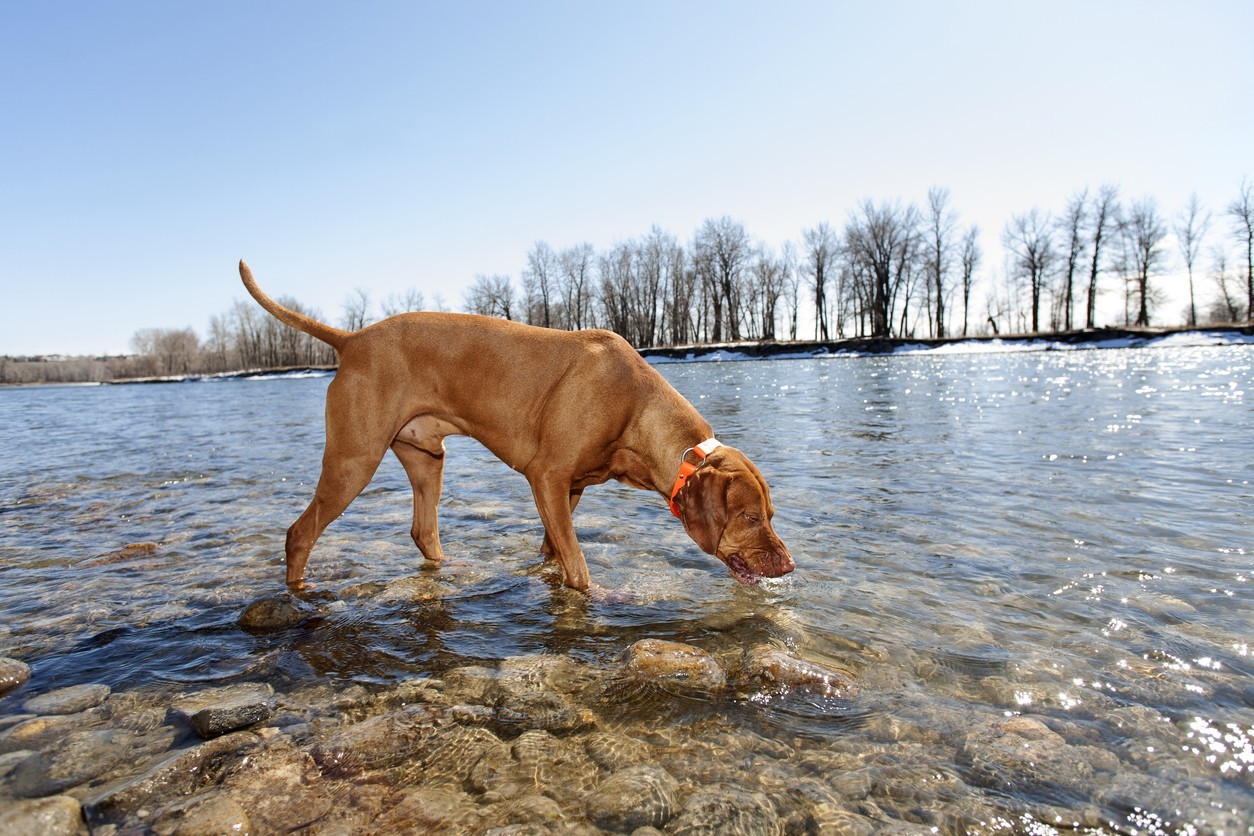Something in the Water: Giardia and Pets
Giardia is a microscopic single-celled parasite that can cause tremendous trouble in your pet’s intestinal tract. All mammals, including humans, dogs, and cats, can contract and transmit this parasitic infection. By learning about this common parasite and how it’s spread, you can help protect your pet from Giardia’s unpleasant effects and avoid an unanticipated visit with our UrgentVet team.
Parasite profile: Giardia and pets
Unlike other well-known intestinal parasites, Giardia is not a worm but a protozoa (i.e., single-celled organism). Giardia’s two forms (i.e., stages) include cysts and trophozoites:
Giardia cysts — Encysted Giardia are this disease’s infectious form (i.e., the form your pet encounters in the environment). Cysts are encapsulated in a tough shell, which helps them survive for months in the environment.
Giardia trophozoites — Trophozoites are Giardia’s feeding form, which dwell in the intestines and damage the intestinal lining, which is essential for a pet’s nutrient absorption.
An affected mammal then sheds cysts in their feces, and the cysts are immediately infectious.
Exposed: Giardia transmission in pets
Giardia transmission occurs through the fecal-oral route. A pet can become infected by exposure to contaminated soil, water, or objects. This could include direct consumption, self-grooming after rolling or standing in infective soil, or sniffing a contaminated substrate or surface.
Gut feelings: Giardiasis signs in pets
Giardia causes stool that is pale yellow, tan, or green, and contains visible fat. Giardia stools and diarrhea are also unusually foul-smelling, containing mucus, but rarely blood. Chronic diarrhea can lead to dehydration and weakness, especially in puppies and kittens. Surprisingly, some pets who have giardiasis are asymptomatic, while others experience obvious illness signs such as:
Chronic or intermittent diarrhea
Weight loss
Inappetence
Vomiting
Lethargy
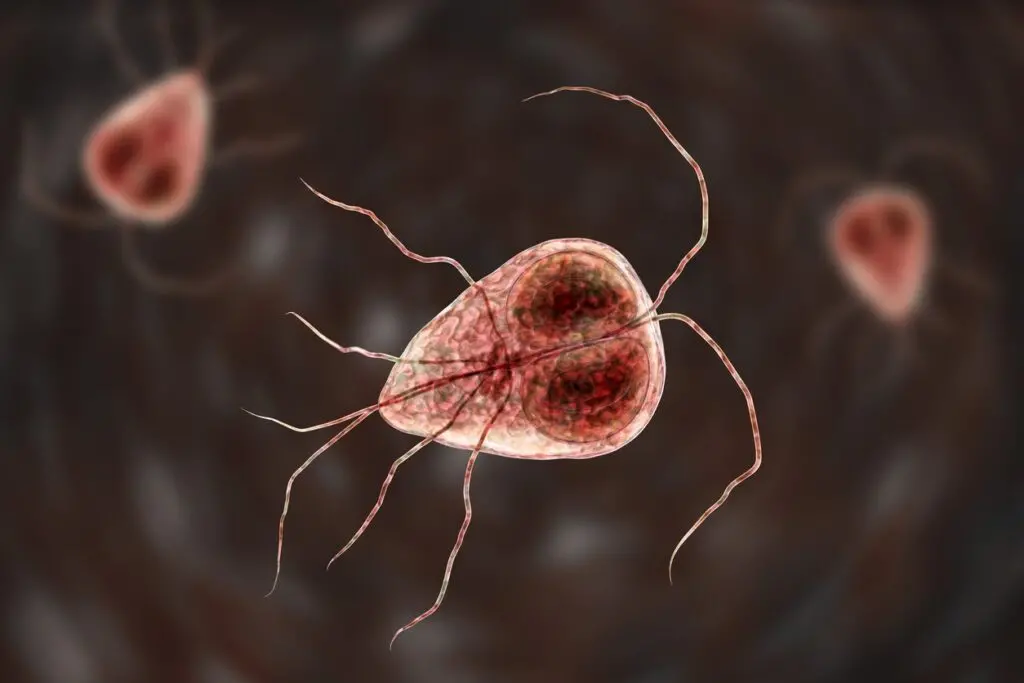
Answers: Giardia testing and diagnosis in pets
In asymptomatic pets, giardiasis may be an incidental finding during a routine intestinal parasite screening (i.e., fecal test). However, if your four-legged friend is exhibiting Giarda signs, our UrgentVet team will confirm our suspicions by performing a detailed diagnostic testing protocol that includes:
Taking your pet’s health history — This includes questions about potential exposure to contaminated water sources, wildlife habitats, or high-traffic pet areas.
Performing a physical examination — Hands-on assessment allows our team to check for dehydration, abdominal pain, fever, or signs that may suggest another condition with similar signs.
Screening for intestinal parasites (i.e., fecal test) — We review your pet’s fecal sample microscopically for visible cysts or, rarely, trophozoites. Unfortunately, because Giardia cysts are not shed continuously, this test may provide a false-negative result. We may have to take several days’ fecal samples.
Giardia antigen test — These simple in-house tests screen your pet’s fecal sample for Giardia-specific antigens and is usually performed in conjunction with a traditional fecal test if we suspect your furry pal has giardiasis.
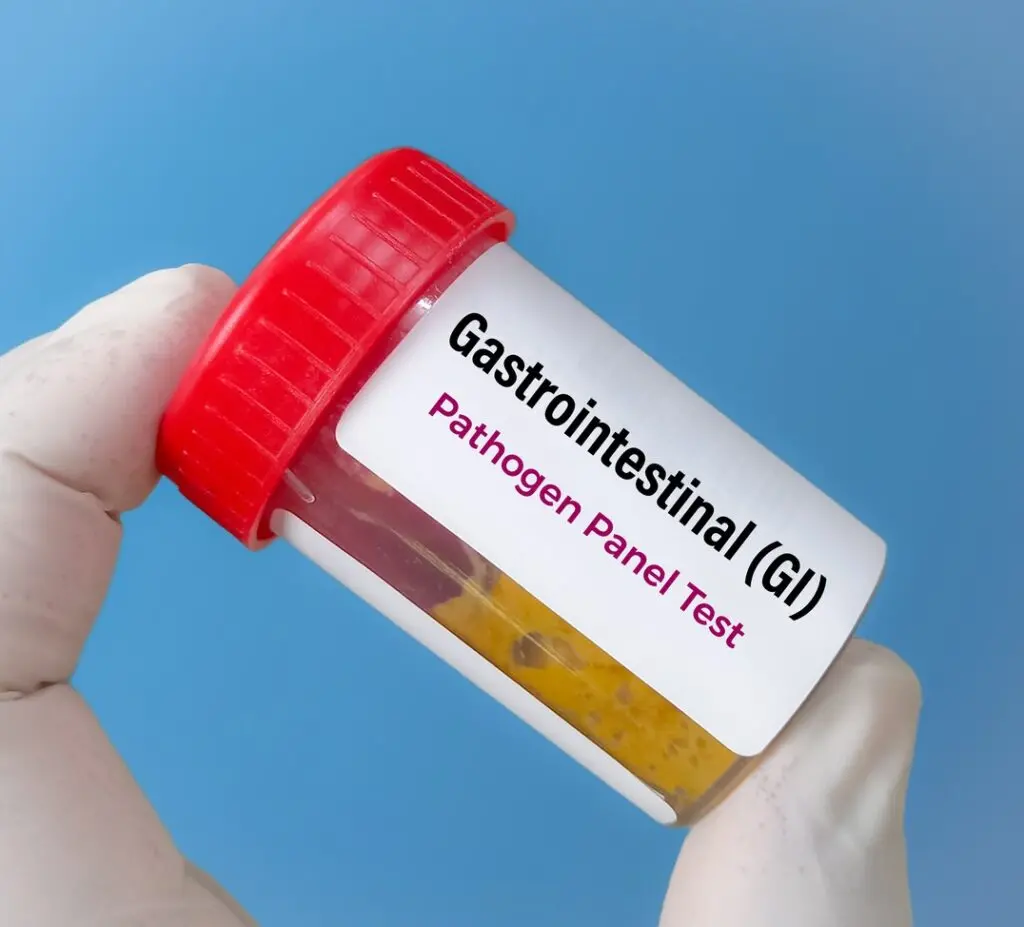
Bye-bye, parasites: Giardiasis treatment for pets
Giardiasis treatment for pets is safe and relatively simple, however because the encysted form is resistant to medication, you must follow our UrgentVet team’s strict guidelines to prevent reinfection. Standard giardiasis treatment includes:
Medication — Our team will prescribe an oral anti-parasitic regimen.
Environmental control — Promptly pick up and dispose of pet waste during and after treatment to avoid further contaminating the environment and infecting other pets. If possible, walk your dog in a confined area until treatment is complete.
Hygiene and hand washing — Although pets and humans are typically affected by different Giardia strains and zoonotic infection is uncommon, always wash your hands thoroughly after petting your four-legged friend and avoid eating, drinking, or touching your face around your pet.
Bathing — Bathing your pet after treatment can reduce reinfection by removing fecal debris and unseen cysts from your furry pal’s coat, because your pet may ingest infectious cysts during self-grooming.
Follow-up testing — Recheck examinations and testing are recommended for symptomatic pets to ensure that treatment has resolved their signs.
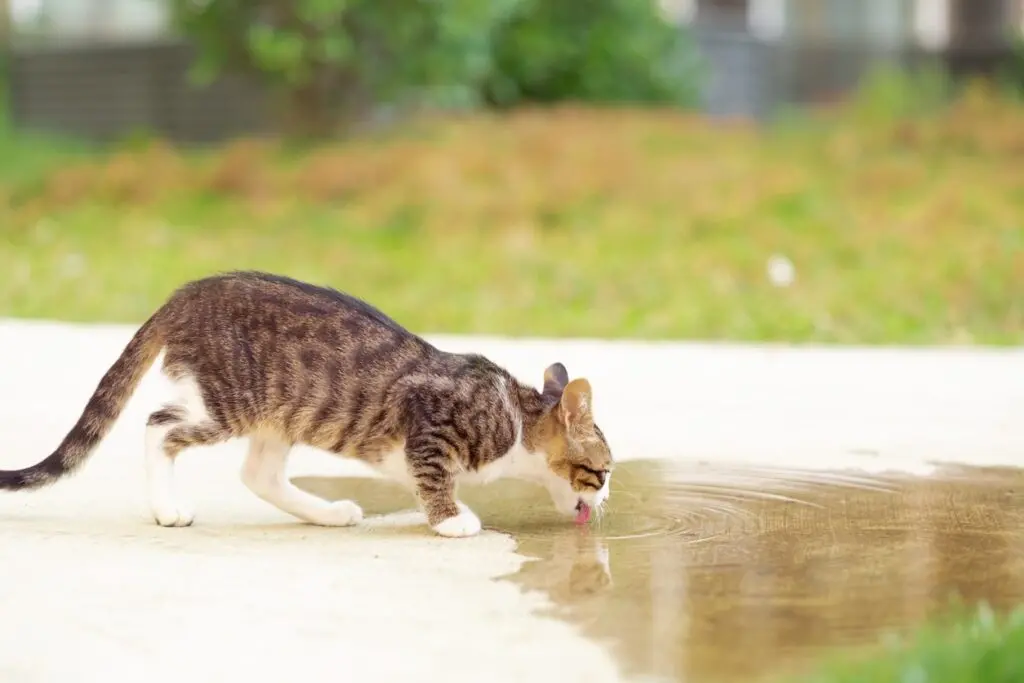
Bug off: Protecting your pet from Giardia infection
Although many parasite preventives protect against intestinal worms, these medications do not prevent your pet from contracting giardiasis. Therefore, our UrgentVet team encourages you to be vigilant about your four-legged friend’s environment and to practice good hygiene to reduce their giardiasis risk. Giardia prevention measures include:
Maintaining a clean yard or litter box — Prompt waste removal minimizes ground and litter box contamination.
Discouraging wildlife from traversing areas your pet frequents — Do not place wildlife attractors, such as bird, squirrel, or deer feeders, near your pet’s outdoor space. Pick up outdoor pet food and water bowls at night to prevent nocturnal pests, such as raccoons or stray cats, from contaminating your four-legged friend’s resources.
Keeping pet items clean and sanitized — Routinely clean each household pet’s resources. Doing so is a good practice for preventing disease spread among pets.
Avoiding high-traffic pet or wildlife areas — By keeping your furry pal away from areas pets congregate or wildlife traverses, you help prevent your pet from coming in contact with an unfamiliar animal’s stool or potentially contaminated water sources.
Staying up-to-date on routine wellness care — Regular physical examinations and fecal tests help ensure your pet isn’t harboring a hidden illness or infection. If our team detects an asymptomatic infection, we will provide your four-legged friend with prompt treatment to control the condition’s spread and rid them of disease before they exhibit illness signs.
Giardiasis is a highly prevalent and undeniably unpleasant parasitic infection in pets. If your dog or cat is suffering from unexplained diarrhea or chronic loose stools, this ubiquitous protozoan may be to blame. Don’t let your pet endure another day or night of intestinal discomfort. Check-in at an UrgentVet location near you for convenient, compassionate, and knowledgeable after-hours care—because your pet can’t wait to feel better.
